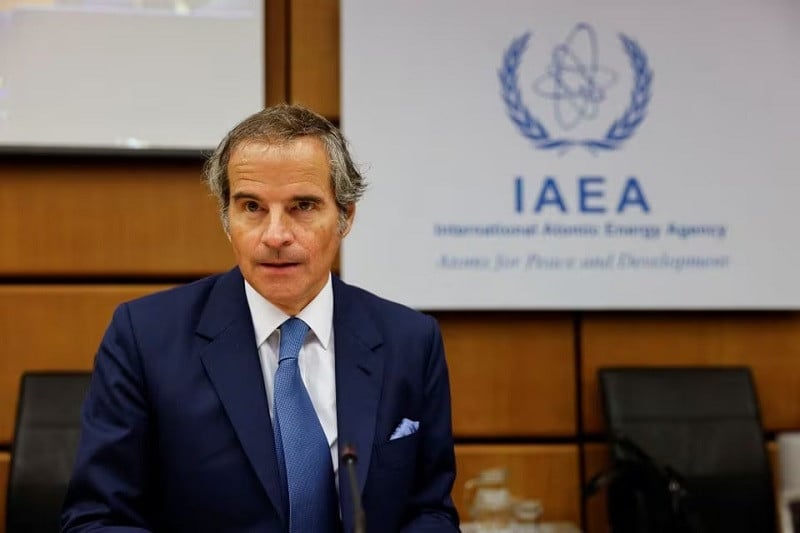Vienna:
The top policy-making body of the UN nuclear watchdog convened for its quarterly meeting on Monday, and diplomats reported that Western nations once again declined to take Iran’s refusal to work with the agency on a number of matters seriously.

More than a year has passed since the 35-nation Board of Governors of the International Atomic Energy Agency issued a resolution directing Iran to assist with an extensive IAEA investigation into uranium particles discovered at sites that were not declared. The resolution stated that it was “essential and urgent” for Iran to provide an explanation for the traces.
Since then, the list of issues between the IAEA and Iran has only gotten longer, despite the fact that the number of undeclared sites under investigation has decreased from three to two. Iran blocked some of the most important inspectors for the agency in September and did not completely honor a promise to reinstall IAEA cameras at key sites.
Rafael Grossi, the director general, addressed the Board meeting, saying, “I… deeply regret that Iran has yet to reverse its decision to withdraw the designations for several experienced Agency inspectors.”
“Only through constructive and meaningful engagement can all of these concerns be addressed and once again I call upon Iran to cooperate fully and unambiguously with the Agency.”
The United States did not want to take a chance on additional diplomatic escalation with Iran by pressing for a resolution against it at the IAEA, diplomats said, given that Israel’s military incursion in Gaza is still ongoing in response to Hamas’s strikes on October 7, which have escalated tensions throughout the Middle East.
A Western diplomat stated, “If you did do a (IAEA Board) resolution right now… it’s too dangerous to do anything that could be construed as a wrong signal that could trigger a miscalculation,” citing a number of concerns.
“The region is in this heightened state, you don’t have a ceasefire or resolution of any sort in Gaza, we don’t have the prospects of any kind of nuclear solution, and … the US is going into presidential elections,” they stated.
Before the Board meeting, diplomats reported that Britain, France, and Germany, collectively known as the “E3,” the three European powers that jointly sponsored the last resolution with the United States and normally work in tandem with Washington, were pressing for a resolution and had already begun work on a text.
But Washington, once again the most reticent of the four nations, has opposed seeking a resolution against Iran for months, at least in part because of the upcoming US presidential election in November, diplomats have said.
On these and other issues, such as its increasing stockpile of enriched uranium that, if further refined, would be sufficient to power multiple nuclear weapons, the United States and E3 have been outspoken in their criticism of Iran. Iran claims that this is not its purpose.










































